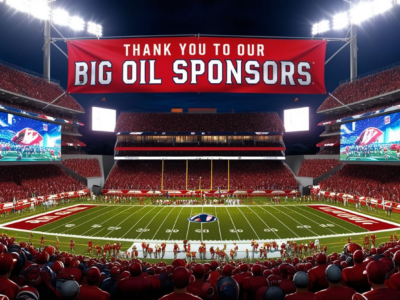What’s Been Killing U.S. Coal?
No, it’s not Biden. Or EPA. The culprits are supply and demand.
From 1960 to 2005, coal use grew more or less steadily by 18 million tons per year. It then tread water for a few years and began a steep decline in 2008, going from half of U.S. electricity to about one-fifth today. What happened in the middle of the Bush Administration to halt growth? And what sparked the ensuing plunge in coal use starting with Obama’s presidency?
The decline probably wasn’t due to environmental regulation. The passage of the 1970 Clean Air Act and its major 1990 Amendments don’t show up at all in a graph of coal use. In fact, there was a surge in construction of new coal plants after 1970 due to high electricity demand. Coal began to really plunge in 2012, three years before Obama’s Clean Power Plan was issued. Regulation may have made a difference, since coal requires more extensive pollution controls than competing fuels. But this could only have a contributing factor.
Probably the most obvious cause was fracking. Since around 2008, natural gas use has been the mirror image of coal use. Gas had long been more expensive and more volatile in price than coal. But the growth of fracking began in earnest around 2008, and it drove down the price of gas. Growth in renewable energy, which was likely driven by state energy policies, took an extra bit out of the market for coal.
Another key factor is often overlooked. In 2010, U.S. electricity use hit a ceiling, and it has risen only slightly since then. That meant that coal was competing with gas (and renewables) for customers in a market that was no longer growing, creating a zero-sum game. The reasons why electricity peaked in developed countries (including the U.S.) aren’t entirely clear, though the International Energy Agency attributes the change to improved energy efficiency. Declining population growth and the shift of heavy industry to China seems like other possible factors.
Taken together, the growth in gas (and secondarily renewables), combined with a stagnant electricity market, explain why coal use has plummeted.
Politically, what has happened to coal jobs may be more salient. The decline in coal use explains only part of that change.
U.S. coal employment peaked in 1980, more than twenty years before peak coal. Labor productivity is much higher for Western coal, which accounts for much of the production. Employment in the Western part of the industry has stayed fairly steady over the past thirty years. Employment in the East (basically Appalachia) fell before 2000, ticked up until 2012, and then resumed falling. The fall since 2012 may be attributable to the fall in coal demand, but the pre-2000 cause had to be automation, loss of market share to Western coal (which is much less labor intensive), or some combination of the two. By 2012 about half of 1980 employment had already been lost, nearly all in Appalachia.
What killed coal as America’s dominant fuel? The main culprits seem to be fracking and energy efficiency, with an assist from renewable energy. In terms of coal industry jobs, economic shifts within the industry seem to account for half the decline. For better or worse, national environmental regulation doesn’t seem to have played the leading role.
Reader Comments
4 Replies to “What’s Been Killing U.S. Coal?”
Comments are closed.






RE: What killed coal as America’s dominant fuel?
ANSWER: It should have been communications with the public by academic leaders to inform, educate and motivate us to make the right things happen.
Instead we have a culture that fails,as Nicholas Dirks noted in the Summer 2013 issue of CALIFORNIA Magazine:“I’ve actually been thinking about the question of purity because of reading Richard Hofstadter’s [1963 book] Anti-Intellectualism in American Life.… He talked about how academics characterized themselves as pure. And he noted that one of the reasons, perhaps, why there were so few public intellectuals of note in America is not just because America is anti-intellectual—which of course it is—but also because so many intellectuals don’t want to take on the sort of complications and impurities that come with being public.”
CONSEQUENCE: Climate changes keep destroying the human race because universities consider The Power of Money to be more important.
P.S. Dan, what really motivated me to repeat my pleas of the past was a guest on the Morning Joe Show today that
interviewed Jonathan A. Greenblatt, CEO of ADL (Anti-Defamation League) who discussed the war. One most important comment that he made was he felt, most strongly, that university leaders must play a bigger role in preventing what is happening, again, today.
FINIS: The human race is killing itself because “so many intellectuals don’t want to take on the sort of complications and impurities that come with being public.”
Well, I guess my failure to receive comments, and considering the fact that university leaders consider the Power of Money more important than Protecting the Human Race, that means I have been given the Honor of being awarded Impure status instead of Pure like academics consider themselves to be. Thank You Dan.
It must also explain why Jonathan A. Greenblatt is so rightfully concerned about the failure of university leaders.